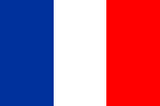| ICFCY-Code | Title | Description |

|
b114
|
Orientation functions |
General mental functions of knowing and ascertaining one's relation to object, to self, to others, to time and to one's surroundings and space. |

|
b11420
|
Orientation to self |
Mental functions that produce awareness of one's own identity. |

|
b1266
|
Confidence |
Mental functions that produce a personal disposition that is self-assured, bold and assertive, as contrasted to being timid, insecure and self-effacing. |

|
b1403
|
Sharing attention |
Mental functions that permit focusing on the same stimulus by two or more people, such as a child and a caregiver both focusing on a toy. |

|
b1565
|
Visuospatial perception |
Mental function involved in distinguishing by sight the relative position of objects in the environment or in relation to oneself. |

|
b1644
|
Insight |
Mental functions of awareness and understanding of oneself and one's behaviour. |

|
b180
|
Experience of self and time functions |
Specific mental functions related to the awareness of one's identity, one's body, one's position in the reality of one's environment and of time. |

|
b1800
|
Experience of self |
Specific mental functions of being aware of one's own identity and one's position in the reality of the environment around oneself. |

|
b1808
|
Experience of self and time functions, other specified |
|

|
b1809
|
Experience of self and time functions, unspecified |
|

|
b2401
|
Dizziness |
Sensation of motion involving either oneself or one's environment; sensation of rotating, swaying or tilting. |

|
d2200
|
Carrying out multiple tasks |
Preparing, initiating and arranging the time and space needed for several tasks, and managing and executing several tasks, together or sequentially, such as dressing oneself completely for a cold day or making arrangements for a party. |

|
d240
|
Handling stress and other psychological demands |
Carrying out simple or complex and coordinated actions to manage and control the psychological demands required to carry out tasks demanding significant responsibilities and involving stress, distraction, or crises, such as taking exams, driving a vehicle during heavy traffic, putting on clothes when hurried by parents, finishing a task within a time-limit or taking care of a large group of children. |

|
d3500
|
Starting a conversation |
Beginning an interchange, such as initiating turn-taking activity through eye-contact or other means, that leads to communication or dialogue, such as by introducing oneself, expressing customary greetings, or by introducing a topic or asking questions. |

|
d420
|
Transferring oneself |
Moving from one surface to another, such as sliding along a bench or moving from a bed to a chair, without changing body position. |

|
d4200
|
Transferring oneself while sitting |
Moving from a sitting position on one seat to another seat on the same or a different level, such as moving from a chair to a bed. |

|
d4201
|
Transferring oneself while lying |
Moving from one lying position to another on the same or a different level, such as moving from one bed to another. |

|
d4208
|
Transferring oneself, other specified |
|

|
d4209
|
Transferring oneself, unspecified |
|

|
d4450
|
Pulling |
Using fingers, hands and arms to bring an object towards oneself or to move it from place to place, such as when pulling a string or closing a door. |

|
d4451
|
Pushing |
Using fingers, hands and arms to move something from oneself or to move it from place to place, such as when pushing a toy or an animal away. |
|
|
d5
|
CHAPTER 5 SELF-CARE |
This chapter is about caring for oneself, washing and drying oneself, caring for one's body and body parts, dressing, eating and drinking, and looking after one’s health. |

|
d510
|
Washing oneself |
Washing and drying one's whole body, or body parts, using water and appropriate cleaning and drying materials or methods, such as bathing, showering, washing hands and feet, face and hair, and drying with a towel. |

|
d5101
|
Washing whole body |
Applying water, soap and other substances to the whole body in order to clean oneself, such as taking a bath or shower. |

|
d5102
|
Drying oneself |
Using a towel or other means for drying some part or parts of one's body, or the whole body, such as after washing. |

|
d5108
|
Washing oneself, other specified |
|

|
d5109
|
Washing oneself, unspecified |
|

|
d5201
|
Caring for teeth |
Looking after dental hygiene, such as by brushing teeth, flossing, and taking care of a dental prosthesis or orthosis. |

|
d530
|
Toileting |
Indicating the need for, planning and carrying out the elimination of human waste (menstruation, urination and defecation), and cleaning oneself afterwards. |

|
d5300
|
Regulating urination |
Coordinating and managing urination, such as by indicating need, getting into the proper position, choosing and getting to an appropriate place for urination, manipulating clothing before and after urination, and cleaning oneself after urination. |

|
d5301
|
Regulating defecation |
Coordinating and managing defecation such as by indicating need, getting into the proper position, choosing and getting to an appropriate place for defecation, manipulating clothing before and after defecation, and cleaning onself after defecation. |

|
d5302
|
Menstrual care |
Coordinating, planning and caring for menstruation, such as by anticipating menstruation and using sanitary towels and napkins. |

|
d5601
|
Carrying out breast feeding |
Successfully suckle breast for milk and appropriate behaviours and interactions with caregiver, such as eye contact, indicating need and satiation. |

|
d5602
|
Carrying out feeding from bottle |
Successfully suckle from a bottle for milk or other liquid and appropriate behaviours and interactions with caregiver, such as eye contact, indicating need and satiation. |

|
d5700
|
Ensuring one's physical comfort |
Caring for oneself by being aware that one needs to ensure, and ensuring, that one's body is in a comfortable position, that one is not feeling too hot, cold or wet, and that one has adequate lighting. |

|
d5701
|
Managing diet and fitness |
Caring for oneself by being aware of the need and by selecting and consuming nutritious foods and maintaining physical fitness. |

|
d5702
|
Maintaining one's health |
Caring for oneself by being aware of the need and doing what is required to look after one's health, both to respond to risks to health and to prevent ill-health, such as by seeking caregiver or professional assistance; following medical and other health advice; and avoiding risks to health such as physical injury, communicable diseases, drug-taking and sexually transmitted diseases. |

|
d57021
|
Seeking advice or assistance from caregivers or professionals |
|

|
d598
|
Self-care, other specified |
|

|
d599
|
Self-care, unspecified |
|

|
d630
|
Preparing meals |
Planning, organizing, cooking and serving simple and complex meals for oneself and others, such as by making a menu, selecting edible food and drink, getting together ingredients for preparing meals, cooking with heat and preparing cold foods and drinks, and serving the food. |

|
d6302
|
Helping prepare meals |
Working with others in planning, organizing, cooking and serving simple and complex meals for oneself and others, with someone else in charge. |

|
d6501
|
Maintaining dwelling and furnishings |
Repairing and taking care of dwelling, its exterior, interior and contents, such as by painting, repairing fixtures and furniture, and using required tools for repair work. |

|
d6502
|
Maintaining domestic appliances |
Repairing and taking care of all domestic appliances for cooking, cleaning and repairing, such as by oiling and repairing tools and maintaining the washing machine. |

|
d6503
|
Maintaining vehicles |
Repairing and taking care of motorized and non-motorized vehicles for personal use, including bicycles, carts, automobiles and boats. |

|
d6504
|
Maintaining assistive devices |
Repairing and taking care of assistive devices, such as prostheses, orthoses and specialized tools and aids for housekeeping and personal care; maintaining and repairing aids for personal mobility such as canes, walkers, wheelchairs and scooters; and maintaining communication and recreational aids. |

|
d6505
|
Taking care of plants, indoors and outdoors |
Taking care of plants inside and outside the house, such as by planting, watering and fertilizing plants; gardening and growing foods for personal use. |

|
d6506
|
Taking care of animals |
Taking care of domestic animals and pets, such as by feeding, cleaning, grooming and exercising pets; watching over the health of animals or pets; planning for the care of animals or pets in one's absence. |

|
d6507
|
Helping to care for household objects |
Working with others in maintaining and repairing household and other personal objects, with someone else in charge. |

|
d660
|
Assisting others |
Assisting household members and others with their learning, communicating, self-care, movement, within the house or outside; being concerned about, or drawing other's attention to, the well-being of household members and others. |

|
d6600
|
Assisting others with self-care |
Assisting household members and others in performing self-care, including helping others with eating, bathing and dressing; taking care of children or members of the household who are sick or have difficulties with basic self-care; helping others with their toileting. |

|
d6605
|
Assisting others in health maintenance |
Assisting household members and others with formal and informal health care, such as by ensuring that a child gets regular medical check-ups, or that an elderly relative takes required medication. |

|
d6606
|
Helping in assisting others |
Helping in the provision of assistance to household members and others with self-care, communication, movement, interpersonal relations, nutrition and health maintenance, with someone else in charge. |

|
d7200
|
Forming relationships |
Beginning and maintaining interactions with others for a short or long period of time, in a contextually and socially appropriate manner, such as by introducing oneself, finding and establishing friendships and professional relationships, starting a relationship that may become permanent, romantic or intimate. |

|
d7204
|
Maintaining social space |
Being aware of and maintaining a distance between oneself and others that is contextually, socially and culturally appropriate. |

|
d7601
|
Child-parent relationships |
Creating and maintaining relationships with one's parent, such as a young child obeying his or her parents or an adult child taking care of his or her elderly parents. |

|
d815
|
Preschool education |
Learning at an initial level of organized instruction in the home or in the community designed primarily to introduce a child to a school-type environment and prepare the child for compulsory education, such as by acquiring skills in a day-care or similar setting in preparation for school (e.g. educational services provided in the home or in community settings designed to promote health and cognitive, motor, language and social development and readiness skills for formal education). |

|
d850
|
Remunerative employment |
Engaging in all aspects of work, as an occupation, trade, profession or other form of employment, for payment, as an employee, full or part time, or self-employed, such as seeking employment and getting a job, doing the required tasks of the job, attending work on time as required, supervising other workers or being supervised, and performing required tasks alone or in groups. |

|
d8500
|
Self-employment |
Engaging in remunerative work sought or generated by the individual, or contracted from others without a formal employment relationship, such as migratory agricultural work, working as a free-lance writer or consultant, short-term contract work, working as an artist or crafts person, owning and running a shop or other business. |

|
d870
|
Economic self-sufficiency |
Having command over economic resources, from private or public sources, in order to ensure economic security for present and future needs. |

|
d8708
|
Economic self-sufficiency, other specified |
|

|
d8709
|
Economic self-sufficiency, unspecified |
|

|
d880
|
Engagement in play |
Purposeful, sustained engagement in activities with objects, toys, materials or games, occupying oneself or with others. |

|
d8800
|
Solitary play |
Occupying oneself in purposeful, sustained engagement in activities with objects, toys, materials or games. |

|
d8801
|
Onlooker play |
Occupying oneself by purposeful observation of the activities of others with objects, toys, materials or games, but not joining in their activities. |

|
d930
|
Religion and spirituality |
Engaging in religious or spiritual activities, organizations and practices for self-fulfilment, finding meaning, religious or spiritual value and establishing connection with a divine power, such as is involved in attending a church, temple, mosque or synagogue, praying or chanting for a religious purpose, and spiritual contemplation. |

|
d940
|
Human rights |
Enjoying all nationally and internationally recognized rights that are accorded to people by virtue of their humanity alone, such as human rights as recognized by the United Nations Universal Declaration of Human Rights (1948) and the United Nations Standard Rules for the Equalization of Opportunities for Persons with Disabilities (1993); the United Nations Convention on the Rights of the Child (1989); the right to self-determination or autonomy; and the right to control over one's destiny. |

|
e340
|
Personal care providers and personal assistants |
Individuals who provide services as required to support individuals in their daily activities and maintenance of performance at work, education or other life situation, provided either through public or private funds, or else on a voluntary basis, such as providers of support for home-making and maintenance, personal assistants, transport assistants, paid help, nannies and others who function as primary caregivers. |

|
e345
|
Strangers |
Individuals who are unfamiliar and unrelated, or those who have not yet established a relationship or association, including persons unknown to the individual but who are sharing a life situation with them, such as substitute teachers co-workers or care providers. |

|
e440
|
Individual attitudes of personal care providers and personal assistants |
General or specific opinions and beliefs of personal care providers and personal assistants about the person or about other matters (e.g. social, political and economic issues), that influence individual behaviour and actions. |

|
e575
|
General social support services, systems and policies |
Services, systems and policies aimed at providing support to those requiring assistance in areas such as shopping, housework, transport, child care, respite care, self-care and care of others, in order to function more fully in society. |

|
e5750
|
General social support services |
Services and programmes aimed at providing social support to people who, because of age, poverty, unemployment, health condition or disability, require public assistance in the areas of shopping, housework, transport, self-care and care of others, in order to function more fully in society. |

|
e57500
|
Informal care of child or adult by family and friends |
|

|
e57501
|
Family day care provided in home of service provider |
|

|
e57502
|
Child or adult care service centre - profit and non-profit |
|

|
e5800
|
Health services |
Services and programmes at a local, community, regional, state or national level, aimed at delivering interventions to individuals for their physical, psychological and social well-being, such as health promotion and disease prevention services, primary care services, acute care, rehabilitation and long-term care services; services that are publicly or privately funded, delivered on a short-term, long-term, periodic or one-time basis, in a variety of service settings such as community, home-based, school and work settings, general hospitals, speciality hospitals, clinics, and residential and non-residential care facilities, including those who provide these services. |

|
e5801
|
Health systems |
Administrative control and monitoring mechanisms that govern the range of services provided to individuals for their physical, psychological and social well-being, in a variety of settings including community, home-based, school and work settings, general hospitals, speciality hospitals, clinics, and residential and non-residential care facilities, such as systems for implementing regulations and standards that determine eligibility for services, provision of devices, assistive technology or other adapted equipment, and legislation such as health acts that govern features of a health system such as accessibility, universality, portability, public funding and comprehensiveness. |

|
e5802
|
Health policies |
Legislation, regulations and standards that govern the range of services provided to individuals for their physical, psychological and social well-being, in a variety of settings including community, home-based, school and work settings, general hospitals, speciality hospitals, clinics, and residential and non-residential care facilities, such as policies and standards that determine eligibility for services, provision of devices, assistive technology or other adapted equipment, and legislation such as health acts that govern features of a health system such as accessibility, universality, portability, public funding and comprehensiveness. |

|
e5851
|
Education and training systems |
Administrative control and monitoring mechanisms that govern the delivery of education programmes, such as systems for the implementation of policies and standards that determine eligibility for public or private education and special needs-based programmes; local, regional or national boards of education or other authoritative bodies that govern features of the education systems, including curricula, size of classes, numbers of schools in a region, fees and subsidies, special meal programmes and after-school care services. |

|
e5852
|
Education and training policies |
Legislation, regulations and standards that govern the delivery of education programme, such as policies and standards that determine eligibility for public or private education and special needs-based programmes, and dictate the structure of local, regional or national boards of education or other authoritative bodies that govern features of the education system, including curricula, size of classes, numbers of schools in a region, fees and subsidies, special meal programmes and after-school care services. |

|
e5854
|
Special education and training systems |
Administrative control and monitoring mechanisms that govern the delivery of special education programmes, such as systems for the implementation of policies and standards that determine eligibility for public or private education and special needs-based programmes; local, regional or national boards of education or other authoritative bodies that govern features of the education systems, including curricula, size of classes, numbers of schools in a region, fees and subsidies, special meal programmes and after-school care services. |

|
e5855
|
Special education and training policies |
Legislation, regulations and standards that govern the delivery of special education programmes, such as policies and standards that determine eligibility for public or private education and special needs-based programmes, and dictate the structure of local, regional or national boards of education or other authoritative bodies that govern features of the education system, including curricula, size of classes, numbers of schools in a region, fees and subsidies, special meal programmes and after-school care services. |


 =Select (and add) this code
=Select (and add) this code  Click on a code to expand the branch
Click on a code to expand the branch 


























































































